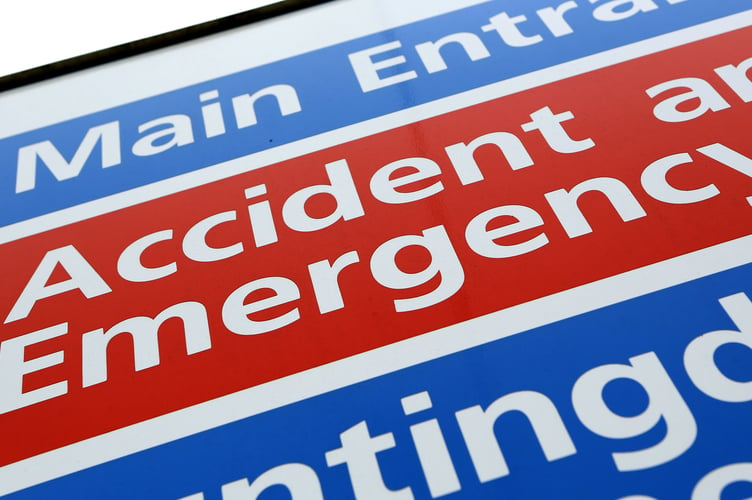Less than two-thirds of patients who arrived at accident and emergency at the Wye Valley Trust last month were seen within four hours, new figures show.
The NHS standard is for 95% of patients to be seen within four hours. However, as part of a recovery plan, the health service aims for 78% of patients to be seen within this time frame by March 2025.
Recent NHS England figures show there were 7,401 visits to A&E at Wye Valley NHS Trust in December. Of them, 4,689 were seen within four hours – accounting for 63% of arrivals.
This means the trust fell well below the recovery target and the original standard.
About 71% of patients in England were seen within four hours in A&Es last month, down slightly from 72% in November.
Figures also show 54,207 emergency admissions waited more than 12 hours in A&E departments from a decision to admit to actually being admitted – a significant jump from 45,791 the month before.
The number waiting at least four hours from a decision to admit to admission also increased, standing at 154,689 patients in December.
At Wye Valley NHS Trust, 668 patients waited longer than four hours, including 232 who were delayed by more than 12 hours.
Sarah Arnold, senior policy lead at The King’s Fund, said: "There are already reports of patients waiting more than two days to be seen in A&E, long ambulance handover delays, and critical incidents have been declared at hospitals up and down the country."
She added: "Extreme pressures in A&E are the bellwether for a health care system that is under intense strain.
"Throughout the year, NHS services are run worryingly close to full capacity, and spikes in demand for care when cold weather, flu or other seasonal pressures hit can be catastrophic."
About 2.3 million people attended A&E departments across England last month.
It meant A&Es have faced a total of 27.4 million attendances in 2024 – the busiest year ever recorded.
The overall number of attendances to A&E at Wye Valley NHS Trust in December was in line with the number of visits recorded during November, and 27% more than the 5,825 patients seen in December 2023.
Professor Sir Stephen Powis, NHS national medical director, said hospitals are under "exceptional pressure" during the ongoing cold weather snap and respiratory viruses like flu.
He added: "It is hard to quantify just through the data how tough it is for frontline staff at the moment – with some staff working in A&E saying that their days at work feel like some of the days we had during the height of the pandemic."
He urged people to only use 999 and A&E in life-threatening emergencies and to use NHS 111 and 111 online for other conditions, as well as using GP and pharmacy services.
Health and Social Care Secretary, Wes Streeting said: "Annual winter pressures should not mean an annual winter crisis, which is why this Government is making significant investment in the NHS, undertaking fundamental reform, and acting now to improve social care.
"It will take time to turn the NHS around, but the fact that waiting lists are now falling shows that change is possible."




